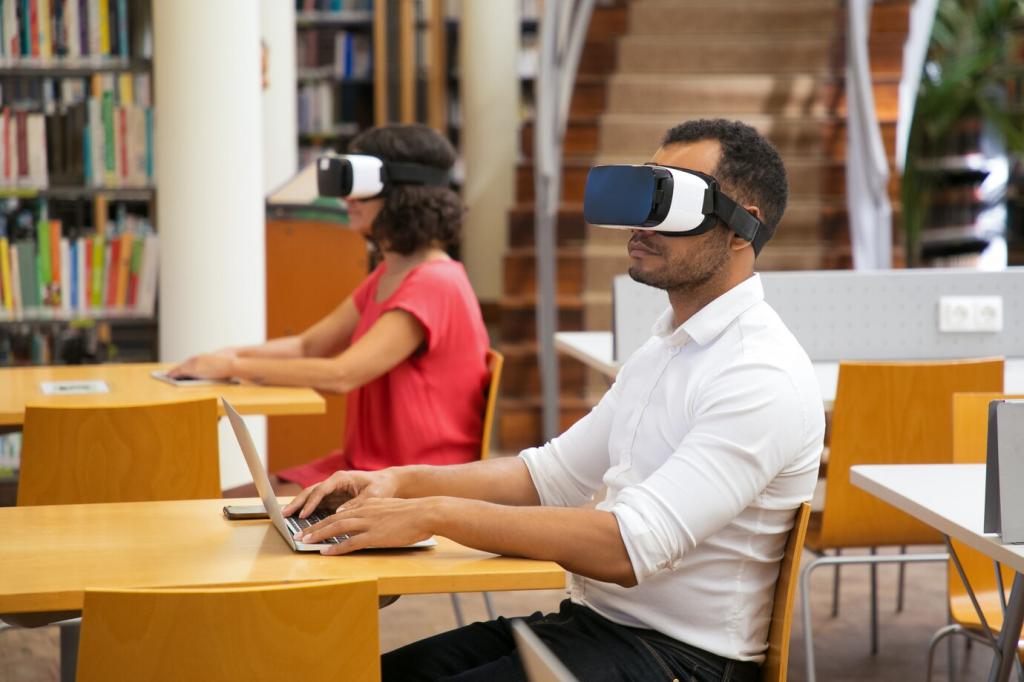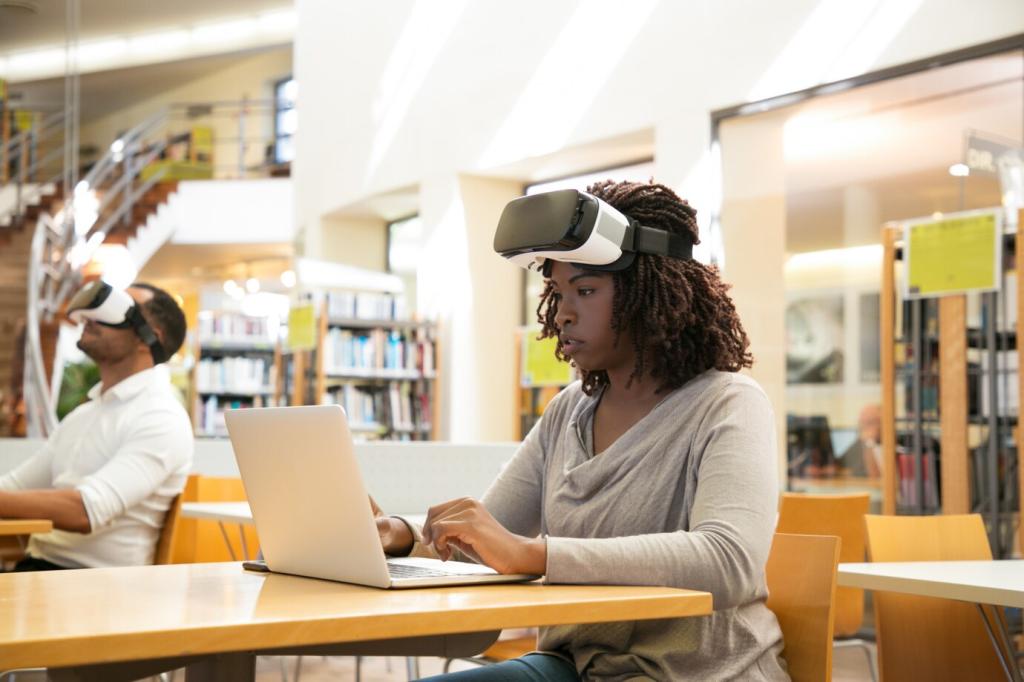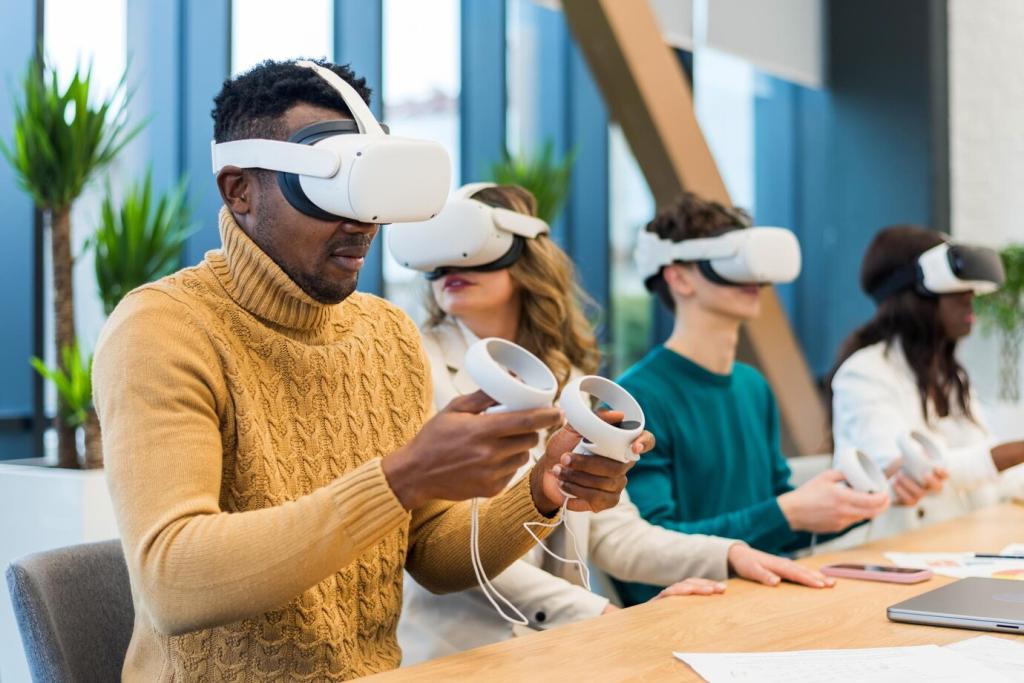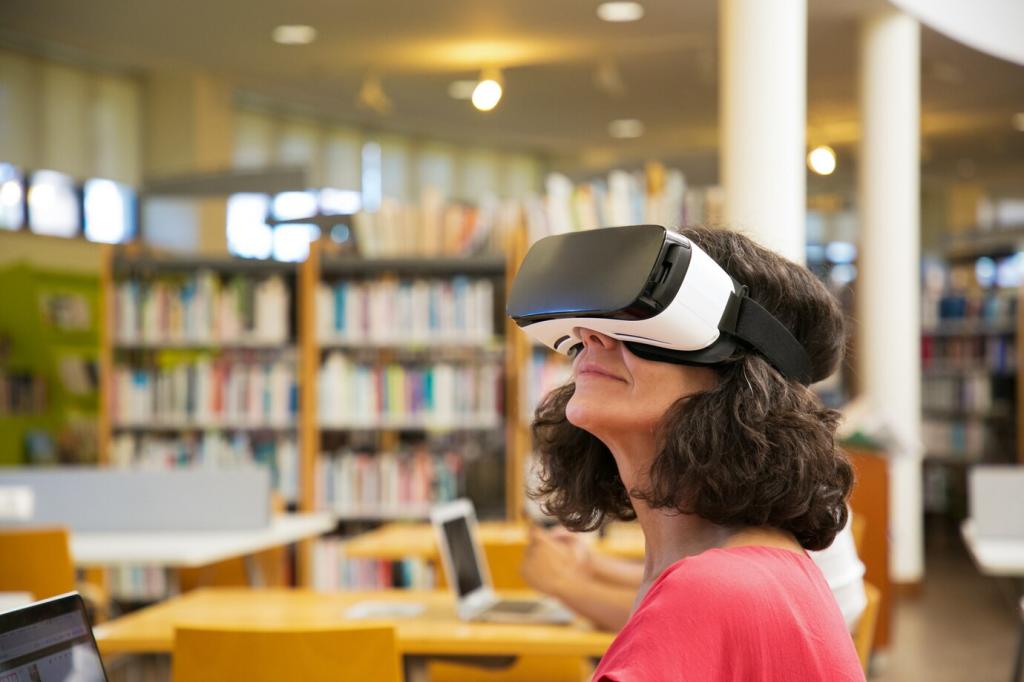Innovative Learning Tools for Enhanced Educational Outcomes
Theme: Innovative Learning Tools for Enhanced Educational Outcomes. Step into a friendly, forward-looking space where we translate cutting-edge edtech into practical classroom wins, richer engagement, and measurable growth. Stay curious, stay bold, and share your journey as we learn together.
From Worksheets to Workflows
The best tools replace one-off worksheets with dynamic workflows that adapt to progress, nudge reflection, and prompt strategic practice. Students don’t just finish tasks; they build skills through cycles of attempt, feedback, revision, and confident demonstration of understanding.
Evidence That Inspires
Studies on active learning consistently report improved grades and deeper retention compared to lecture-only approaches. When digital tools invite retrieval practice, collaborative problem solving, and timely feedback, learners show stronger gains across subjects and lasting improvements in confidence.
Your Role as a Curator
Educators are designers and curators, not tech chauffeurs. Select tools that align with outcomes, simplify routines, and humanize learning. Tell us which tools sharpen your focus on learning goals and which you’re still evaluating for fit and equity.

Adaptive Platforms That Personalize Progress
Strong adaptive tools start with low-stakes diagnostics that map prior knowledge without anxiety. Clear, compassionate entry points ensure students experience early success, building momentum while teachers gain clarity on gaps, misconceptions, and ready-to-teach opportunities.

Safe Spaces to Fail Forward
In a ninth-grade biology class, a virtual lab let students tweak variables without risk. Errors became evidence. The class treated mistakes as data, leading to stronger models and a buzz of curiosity that carried into written reflections.

Making the Invisible Visible
AR overlays and simulations reveal systems we cannot see: molecular interactions, magnetic fields, or historical city layers. When students manipulate these views, their questions sharpen, and explanations gain precision anchored in concrete, manipulable representations.

Designing Reflection that Deepens Learning
After exploration, invite structured reflection with prompts about strategy, evidence, and next steps. Reflection journals, short audio notes, or quick concept maps transform experience into understanding. Comment below with your favorite reflection prompts for simulations or AR activities.
Collaborative Tools that Build Community
Co-Authoring Knowledge
Shared documents and whiteboards let groups sketch, cite, and iterate in real time. Version history makes thinking visible, revealing growth. Try assigning rotating roles—summarizer, challenger, connector—to balance participation and strengthen discourse moves.

Assessment for Learning, Not Just of Learning
Formative Check-Ins that Matter
Quick polls, exit tickets, and auto-graded quizzes can surface misconceptions in minutes. Use branching questions to route students to supports or challenges. Invite students to predict class trends before revealing results to prime metacognitive awareness.
Authentic Performance Tasks
Digital portfolios, podcasts, and mini-documentaries let learners show what they can do beyond a timed test. Align tasks to standards and real audiences. Encourage students to annotate their work with process notes that illuminate decision-making.
Feedback Loops Powered by Tools, Guided by Humans
Automated hints and exemplars accelerate iteration, but human coaching provides nuance and care. Pair quick machine feedback with brief conferences. What blend of automated and teacher feedback most effectively supports your learners’ growth this term?
Accessibility and Equity by Design
01
Seek platforms with captions, screen reader compatibility, alternative text, adjustable contrast, and flexible playback. Give students choice in how they access content and demonstrate understanding, reducing barriers without lowering expectations or obscuring rigor.
02
Downloadable packets, offline modes, and audio-first lessons reduce connectivity hurdles. Provide mirrored activities that work on phones as well as laptops. Invite families to share tech constraints so you can plan compassionate, equitable pathways.
03
Representation matters. Curate examples, voices, and contexts that reflect students’ identities and community strengths. Encourage learners to bring local knowledge into projects, transforming tools into bridges between home experiences and academic goals.
Implementation Playbook for Real Classrooms
Start Small, Learn Fast
Pilot one class, one unit, or one routine. Collect student quotes and quick metrics. Iterate weekly. Share your pilot plan in the comments, and we’ll highlight thoughtful approaches in upcoming newsletters for our community.
Train, Support, Sustain
Offer just-in-time micro-PD, peer coaching, and short screencasts. Create a help channel where wins and hiccups surface quickly. Celebrate teacher creativity so momentum feels shared, not mandated from afar.
Measure What Matters
Track engagement quality, skill growth, and student confidence alongside test scores. Use comparison rubrics and student self-assessments to capture learning that numbers alone miss. Subscribe for monthly templates that simplify evidence gathering and reflection.
